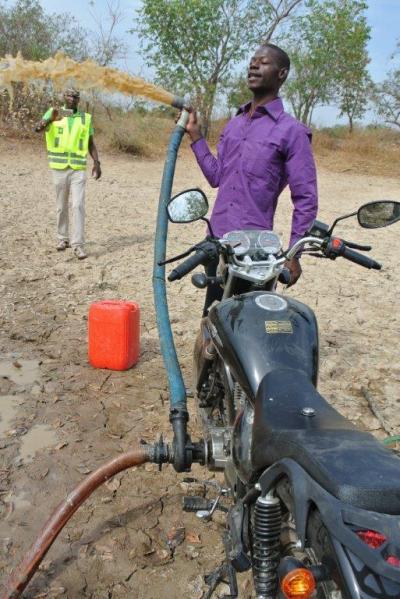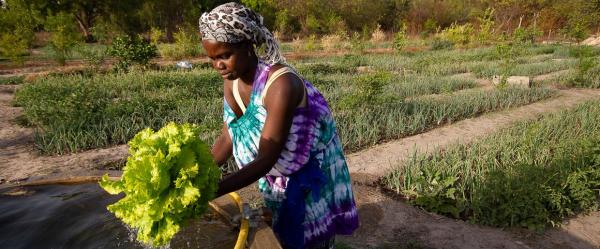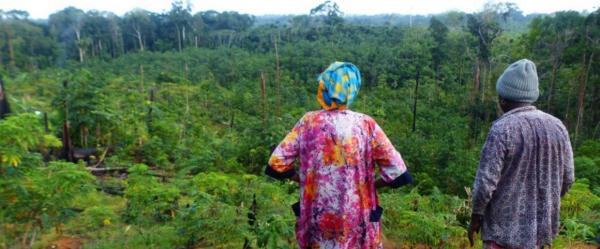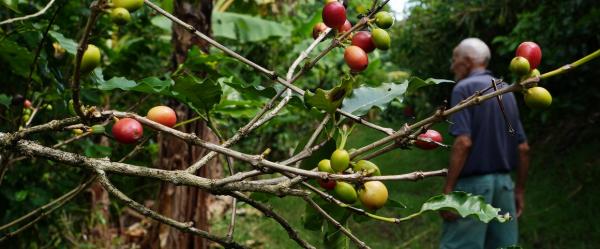Science at work 25 February 2026
- Home
- CIRAD news
- News
- IRRINN: customized small-scale irrigation systems - Burkina Faso
The IRRINN project: disseminating techniques for customized small-scale irrigation systems in Burkina Faso
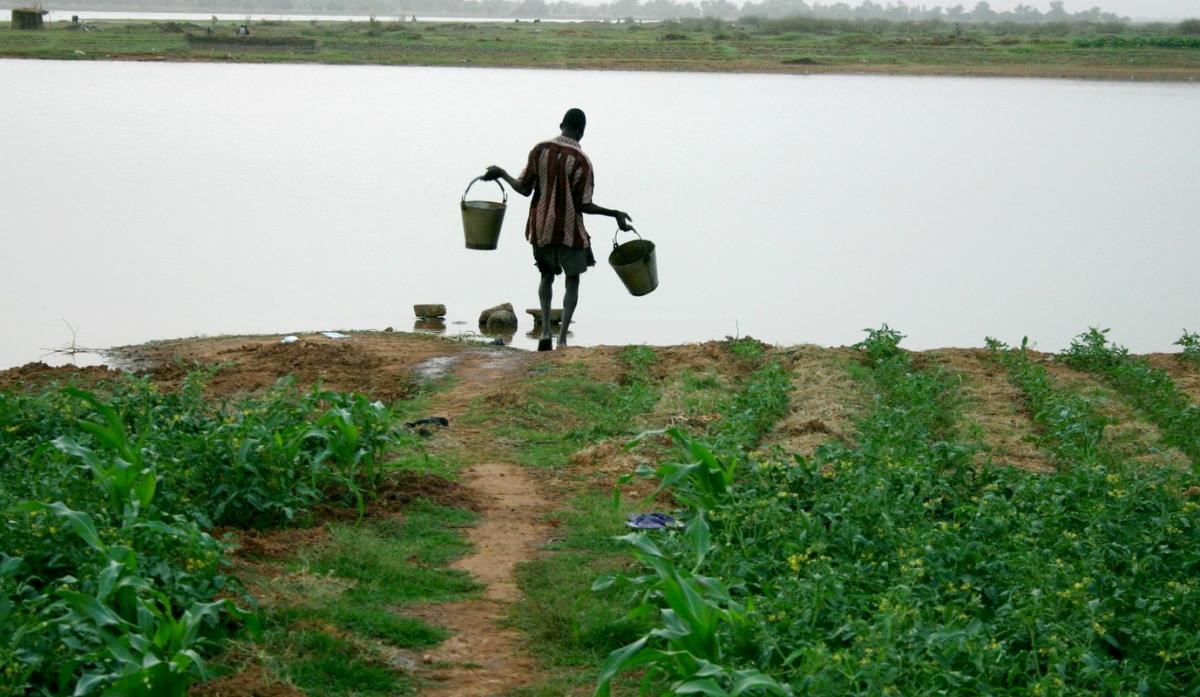
Manual irrigation of peri-urban market garden plots, Burkina Faso © CIRAD, A. Rival
The IRRINN project (intensifying agricultural production by scaling up innovative, adapted irrigation practices and technologies) has just begun in Burkina Faso. Coordinated by CIRAD, it focuses on “small-scale irrigation”. “We will be working on supplemental irrigation with small runoff collection ponds and small-scale private irrigation schemes ”, says Bruno Barbier, an economist at CIRAD with the Water Management, Actors, Territories (G-EAU) research unit in Montpellier. “After the four years of the project, we hope to propose guides explaining how the state and NGOs can work with producers to develop innovations for small-scale irrigation ”.
- 98 % of Burkinabe agricultural land is cultivated without irrigation
Small-scale irrigation is not sufficiently developed
The project is based on several findings. “Rainfed crops account for 98% of agricultural land in Burkina Faso, hence the importance of ponds, which enable producers to store around 300 m³ of water on their land, meaning they can irrigate in pockets of drought", says Bruno Barbier. Thus, since 2012, with the support of the State and NGOs, a thousand ponds have been dug, but with varying degrees of success, since deployment after the research and development phase has encountered technical obstacles. “Small-scale private irrigation is currently developing rapidly around the 1500 dams in Burkina Faso ”, Bruno Barbier continues. “However, some wells are deteriorating and the majority of farmers draw water and irrigate manually ”. The goal of the IRRINN project is therefore to improve existing systems and to ensure the long-term development of small-scale irrigation.
Innovating to improve efficiency
Several approaches will therefore be assessed across seven sites situated around 30 km from Ouagadougou for security reasons. “At the technical level, we will work on waterproofing ponds, designing new wells, comparing different pumps – treadle, oil, solar, etc. –, and examining the types of crops adapted to ponds, and the water balance", says Bruno Barbier. “We will also focus on financing, with the identification of innovative processes and tools that could be based on new information and communication technologies (ICTs). For example, it could be possible to use mobile phones to make loan repayments remotely. Finally, we will test new methods for innovative and participatory intervention, in other words in which producers are also co-developers ”. The approach is therefore multidisciplinary, and includes agronomists, hydrologists, agricultural engineers, economists and sociologists. And alongside the producers, over the four years of the project, all of the political, economic and social partners involved will meet within multi-stakeholder platforms.
Rolling out high quality small-scale irrigation systems
Ultimately, these platforms should lead to the emergence of a network of innovation support services (ISS). “These will bring together equipment suppliers, State extension services, financial services – NGOs, farm credit –, researchers and APESI (a body to promote entrepreneurship and irrigation systems) as the facilitator of innovation ”, says Bruno Barbier. The challenge is to progress from a research project to the widespread implementation of “customized” irrigation solutions that meet the specific needs of producers and the constraints they encounter. The end goal is to increase agricultural productivity and incomes in order to reduce food insecurity and poverty in Burkina Faso, which is at high risk from climate change.
Partners in the IRRINN project
- Institut de l’Environnement et de Recherches Agricoles (Burkina Faso)
- Institut International de l’Ingénierie de l’Eau et de l’Environnement (Burkina Faso)
- Agencia Estatal Consejo Superior de Investigaciones Científicas (Spain)
- Leibniz-Centre for Agricultural Landscape Research (Germany)
- Stichting Practica (Practica Foundation) (Netherlands)
- Action pour la Promotion de l’Entreprenariat et des Systèmes d’Irrigation (Burkina Faso)
The DeSIRA initiative
The DeSIRA initiative (Development Smart Innovation through Research in Agriculture) was launched at the One Planet Summit in Paris in December 2017. It is led by the European Commission Directorate General for International Partnerships (DG INTPA), in association with the Bill & Melinda Gates Foundation. Its aim is to boost innovation in agriculture and changes in food systems in partner countries to make them more resilient to the effects of climate change. It seeks to strengthen research partnerships (Europe and global South), to promote science in partnership with development players, and to focus on impact-oriented research.

























